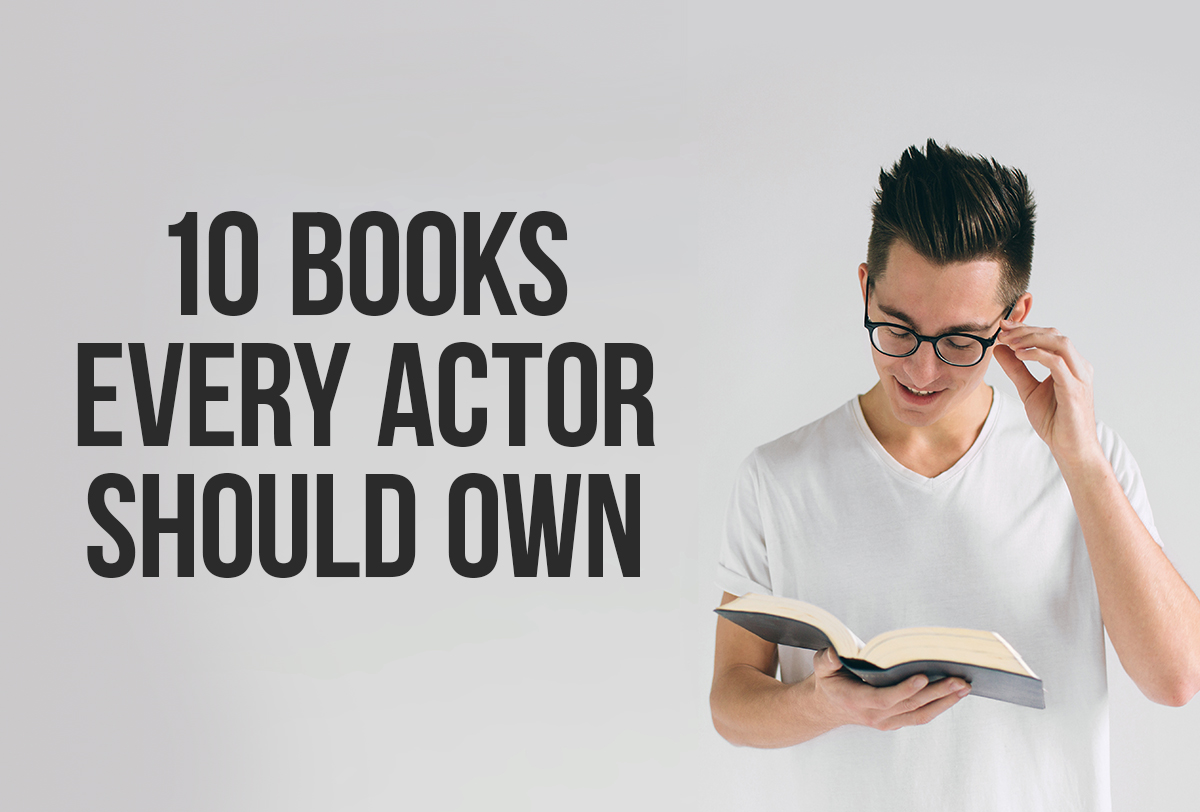10 Books Every Actor Should Own
Written by Amanda Grace
January 19, 2021
Away from the stage and out of the spotlight, an actor’s work lies largely in acquiring new approaches to understanding the human experience. Set aside your repertoire and go back to the building blocks with these essential guides to performance and personhood.

Theatre of the Oppressed (1977) by Augusto Boal
Boal covers the development of theatre through the rise and fall of the bourgeoisie, and their progression from Aristotelian to Machiavellian poetics to the idealist and Marxist poetics of Hugel and Brecht. In addition to being an excellent history of the politics of theatre, Boal’s work also exemplifies the potential of an intrinsically politicized art to create sweeping social change in the presentation of his own theatre’s work in Brazil and the “Joker” format.
Get the book here.
Essential Acting (2009) by Brigid Panet
Panet has spent her decades tutoring at such prestigious institutions as RADA and the Royal Central School of Speech and Drama developing unpretentious and accessible techniques to strengthen her students’ imagination and commitment to the scene. Since leaving her studio, Essential Acting has continued to provide me with her condensed insight from afar.
Get the book here.
Stanislavski in Rehearsal (1987) by Vasili Toporkov
Most actors have studied Stanislavski’s techniques; Toporkov’s translated diaries from production tell us what the master was like in the rehearsal room, and so allow us to build upon our process from the direct accounts of one of his longest-standing students.
Get the book here.
This Is Shakespeare (2019) by Emma Smith
Originally recommended to me by a RSC Associate Director, this play-by-play exploration of what exactly Shakespeare is, in all the complexity and ambiguity of his work, is by far the best book on the Bard I have ever crossed. Smith covers canonical structure and interpretation throughout the ages with enticing expertise.
Get the book here.
All About Love (1999) by bell hooks
Since this is a testimony and not a math equation, the best approach to New Visions is to pick out what works for you. An analysis of love in all its forms—authentic and masquerading—I recommend All About Love to all my dear ones, but especially my actor friends who devote their lives to reflecting how we relate to each other.
Get the book here.
The Theatre of Jean-Louis Barrault (1959), tr. Joseph Chiari
Gifted to me by an elder castmate and mentor, Jean-Louis Barrault’s career memoirs take a place of pride on my bookshelf. These are the best stories you’ve never heard from the actor-director behind the Théâtre de France, lifting the veil on the development of genius works from conception to curtain rise.
Get the book here.
The Body Is Not an Apology (2018) by Sonya Renee Taylor
For performers, an open and understanding relationship with one’s body is a necessity; make sure yours is empathetic and sustainable with the wisdom of Sonya Renee Taylor, who teaches her readers how exactly to take up space in a world designed to force us into shrinking.
Get the book here.
A Challenge for the Actor (1991) by Uta Hagen
A Challenge is a classic for a reason. Hagen is uncompromising, and the work is sometimes painful, but if you’ve ever stood on stage and realized you had absolutely no connection to the moment, her exercises will save you and shape you into a stronger performer with moment-to-moment stamina.
Get the book here.
Writing in Restaurants (1987) by David Mamet
The most controversial author on my list, Mamet is prosaic even in his demands for simplicity. His complex and hard-won premises sometimes conflict (and, occasionally, are horribly outdated), but the vast majority of the time, his bitter pills are honest and sound advice to the actor climbing up the hill of making art.
Get the book here.
Truth in Comedy (1994) by Charna Halpern, Del Close, & Kim “Howard” Johnson
This staple of the “honest improv” practitioner contains ample insight; especially fascinating is the observation that improvisers perhaps see the world as deeply connected because they are trained to see connections where most would never look; that, in fact, the world has always been and will always be full of hidden rapports, where their discovery turns into comedy.
Get the book here.
